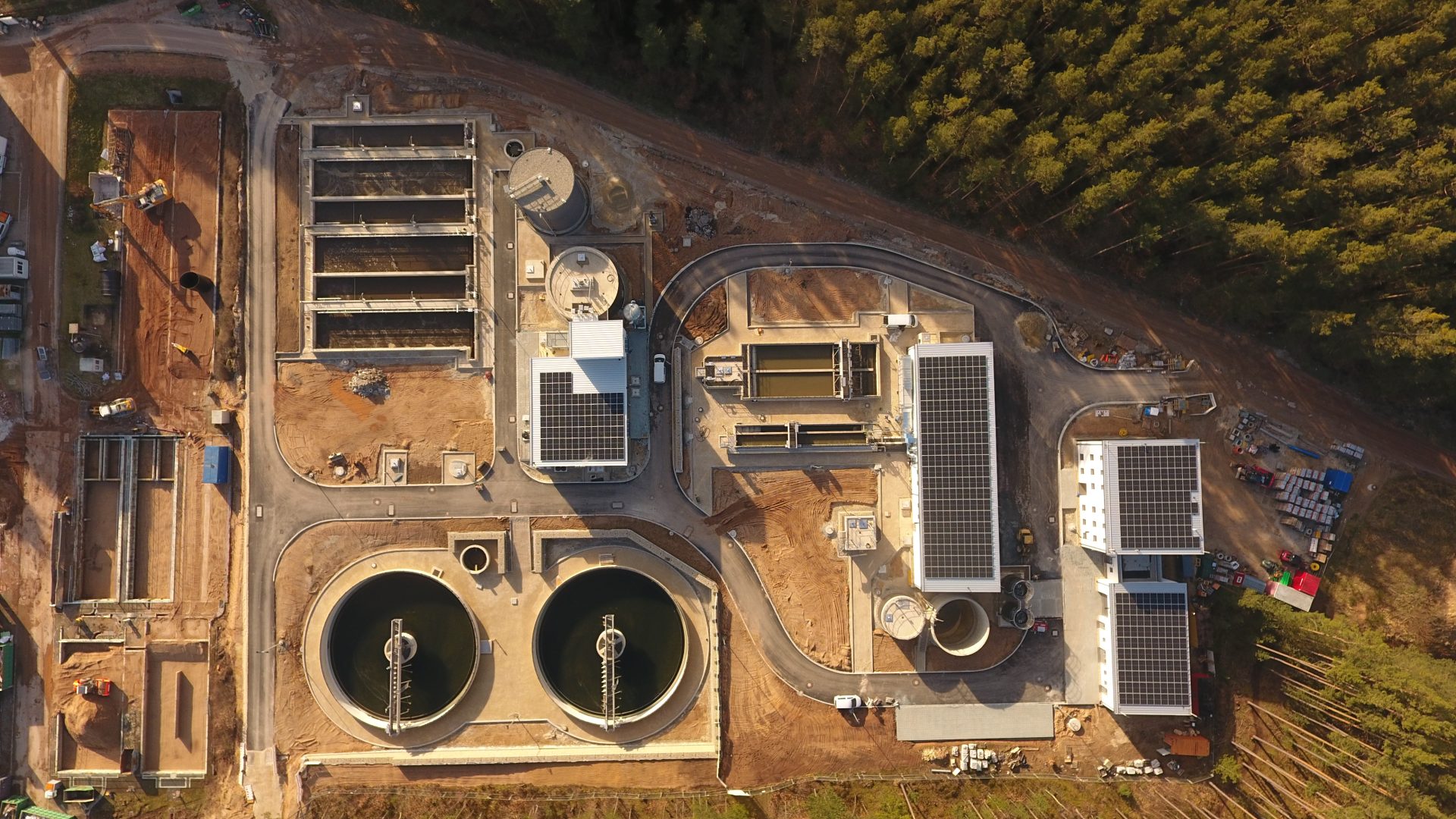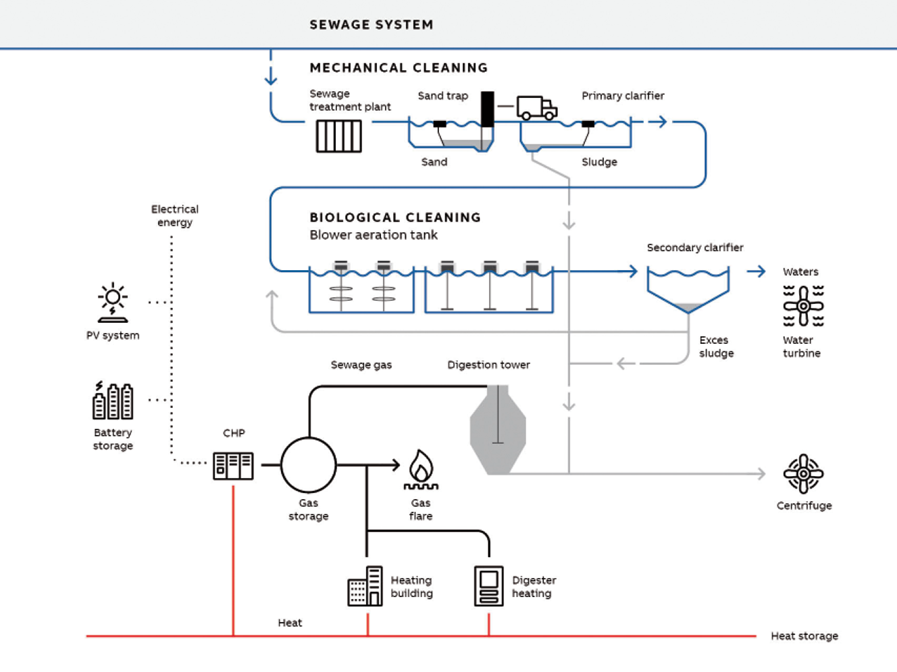Treating and processing wastewater to make it safe to return to the watercourse takes a lot of energy. Research has shown that wastewater plants consume up to 3% of global energy output. State-of-the-art facilities consume 20-45 kWh per population equivalent (PE) 1 a year when connected.
Improving the processes through the latest technologies, with the aim of increasing productivity, reducing energy usage, minimizing losses and optimizing the use of chemicals is therefore an integral part to achieve the overall sustainability goals.
An environmental innovation showcase project
In this context, in September 2022, the sewerage association Schwarzachgruppe put its energy-intelligent wastewater treatment plant in Schwarzenbruck, Germany into operation. The new wastewater treatment plant is an environmental innovation showcase project, which automatically balances energy-consumption and production so that an external power supply is required only rarely or when needed. Thanks to this energy intelligent concept, it is estimated that the plant can save about 300 tons CO₂ per year.
ABB Ability™ Energy Management and Optimization OPTIMAX® is at the heart of this innovative project, enabling energy efficiency potentials to be exploited and existing energy generation and storage options to be networked, controlled and optimized.
These include a hydroelectric power plant in the wastewater treatment plant outlet, photovoltaic solar panels, two combined heat and power plants using the sewage gas, electricity storage in batteries, sewage gas storage, heat storage (hot water storage) and the coupling of the various storage units for the continuous provision of energy (thermal or electrical as required).
In addition, the wastewater treatment plant operates in a grid-serving manner. This means that some assets at the wastewater treatment plant can be controlled via the OPTIMAX® energy management system. In the event of an oversupply of electricity, for example, the battery storage system is charged and vice versa the battery storage can be discharged during low production. The solution is able to calculate the optimum usage of the storages based on load and production forecasts.
Monitoring, controlling, regulating and optimizing made easy
To be able to monitor, control, regulate and optimize such a complex energy system in an energy-efficient way requires an intelligent energy management and optimization system such as OPTIMAX®. The pilot project realizes an energy saving of 100 percent of the previous electricity consumption required from the grid.
The integration of the wastewater treatment plant into the grid-serving operation is an essential part of the project. For this reason, the project received funding of €3.9 million from the German government as part of its Environmental Innovation Program.
1 https://iwa-network.org/learn/circular-economy-tapping-the-power-of-wastewater/




